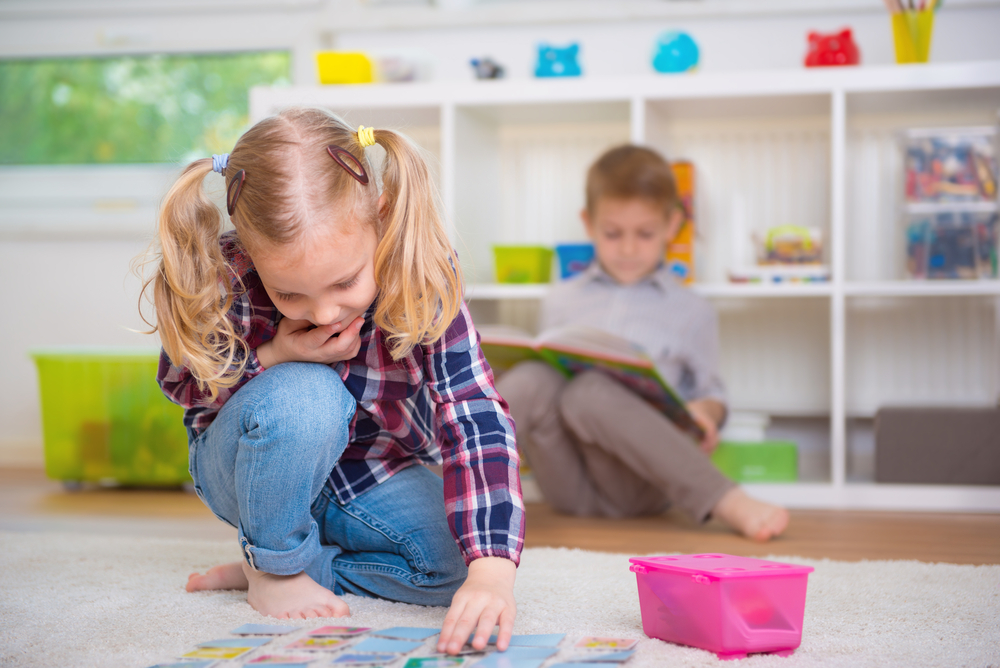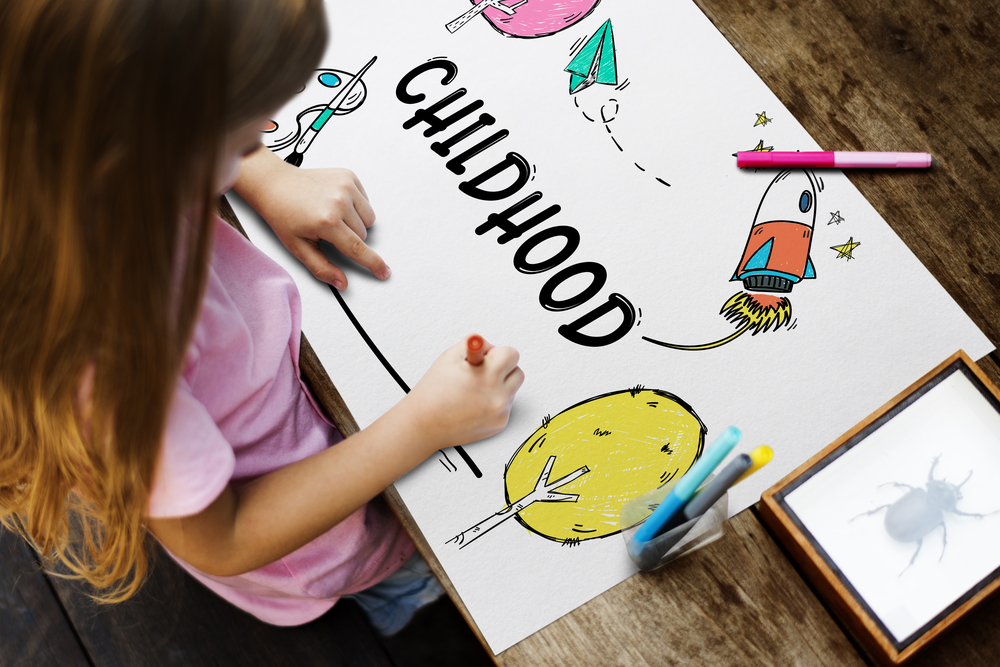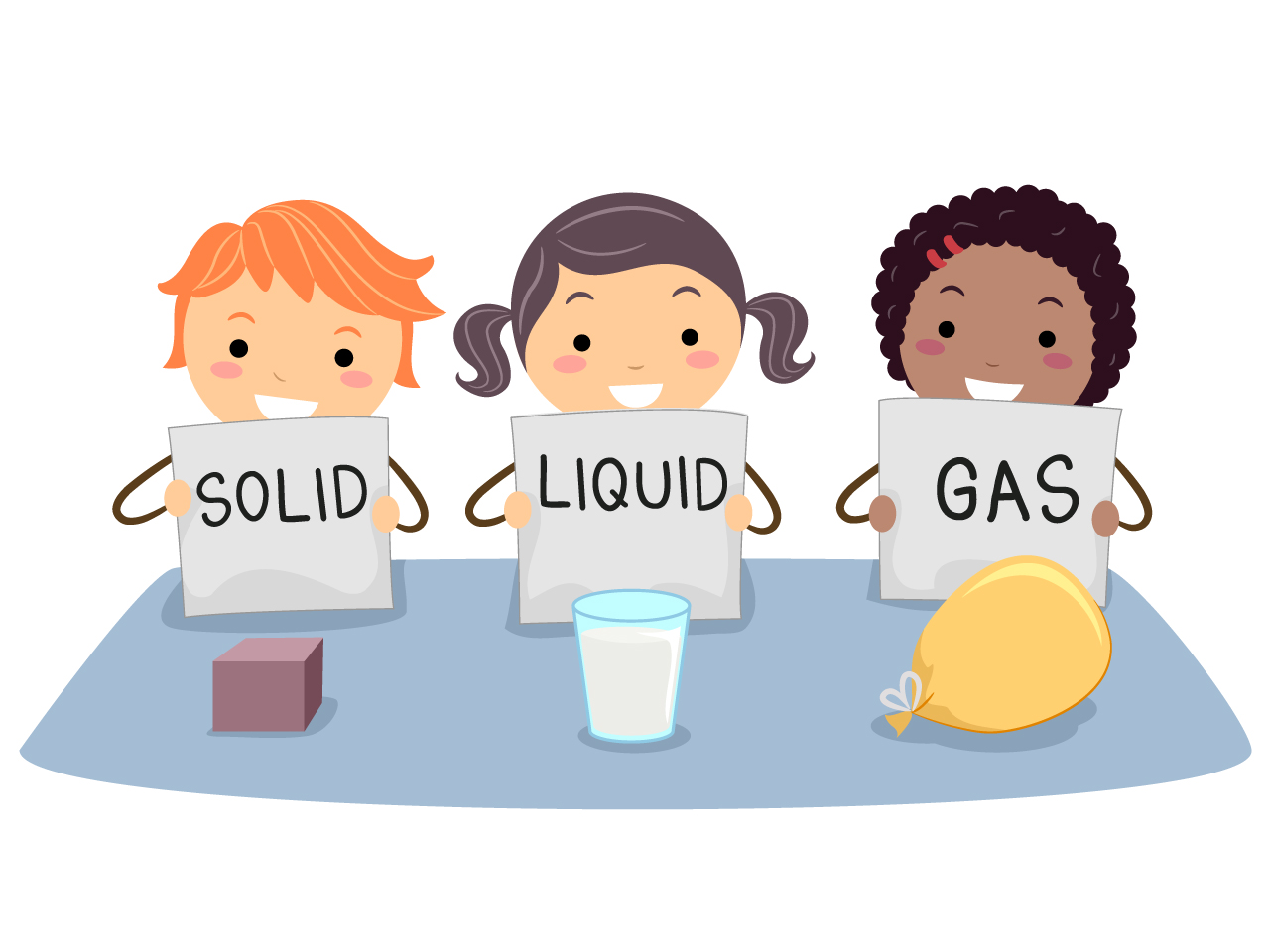Raising Ecological Awareness in Kids
Sept. 19, 2022
Dire Predictions
The climate predictions that many parents and grandparents grew up hearing from the 1970s to the 1990s have not come to fruition, at least not with the impact and severity as foretold. But undeniable data shows weather and climate changes making many negative impacts in the world today.
We cannot deny the increase of extreme wildfires, freak weather events, polar ice melting, rain forests being depleted, and species extinction. No longer can these events be ignored. The best way to battle against climate change and its disastrous outcomes is to educate children on how human activity affects the environment. As a result, this generation will have the knowledge and tools to look for better solutions.
Early Education is Best
Raising a child's ecological awareness begins early. Children, especially kids in the primary school years, love nature and the outdoors. The natural curiosity of children is a perfect springboard into the study of the environment. Children love being outside, growing flowers and vegetables, and observing wildlife. As a result, the possibilities for nature studies are practically endless.
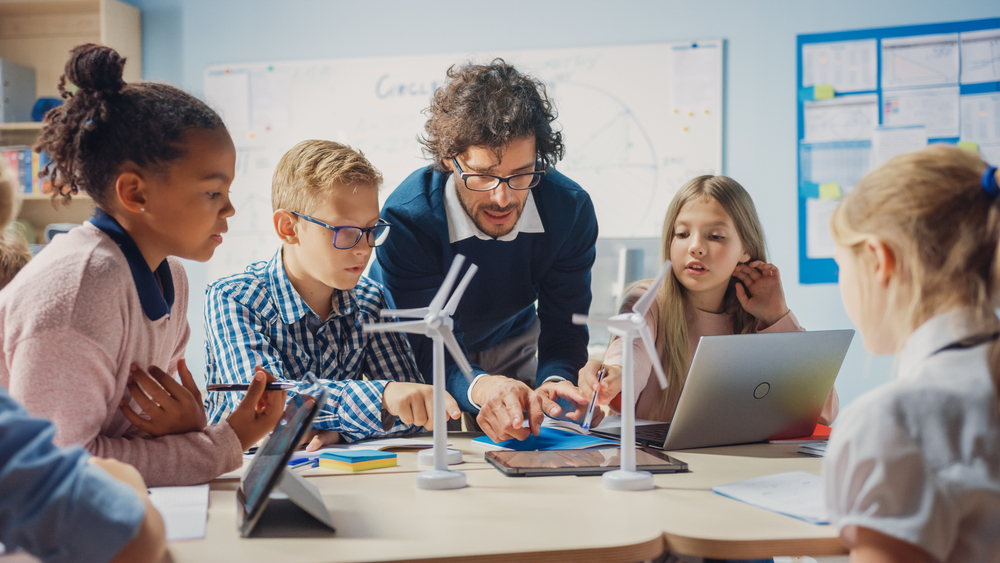
Earth Day activities are a great place to start. Each year, children around the world celebrate the Earth with conservation stories, art that celebrates Earth, and hands-on projects.
Making children aware of the positive impacts they can have on the Earth and its ecosystem, requires more in-depth study into habitats, ecology, and the Earth's systems.
For example, children learning about ocean habitats most often study:
- The variations of plant and animal life in the sea.
- How the sea provides food for the world.
- How electricity is produced by harnessing the energy created from waves.
But raising a child's ecological awareness includes learning how melting polar ice decreases the salinity in the world's seas and threatens sea life. A study exploring the environmental challenges the world faces with the pollution of the Earth’s seas with litter and trash and how finding ways to reuse, reduce and recycle naturally follows.
Kids Academy and the Environment
The science and social studies courses at Kids Academy promote ecological literacy in young students. Kids in their preschool and primary years already have a love for nature. Our philosophy is to begin environmental study with engaging learning videos, lessons, and activities that satisfy the child's natural curiosity. Activities in our science course familiarize children with plants and animals’ diversity and explain their survival adaptations and life cycles.
Besides building a better understanding of how the world around us works, we believe that these activities also help foster a child's love for our planet. Further, kids gain an understanding of the Earth's great and precious ecosystems. The following video features National Parks and teaches the importance of conservation and wildlife. It’s a great resource to teach kids about the beauty of nature.
In addition to videos, online lessons are readily available for your young nature enthusiasts.
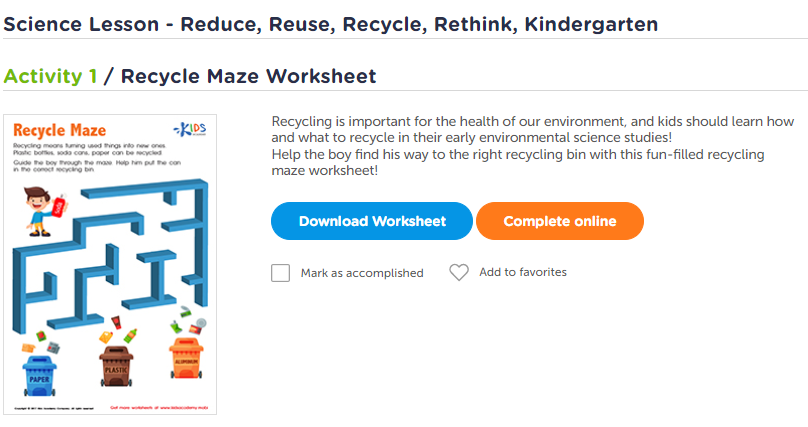
Keep the learning going with kids worksheets that are perfect for practice, re-teaching, and informal assessment.
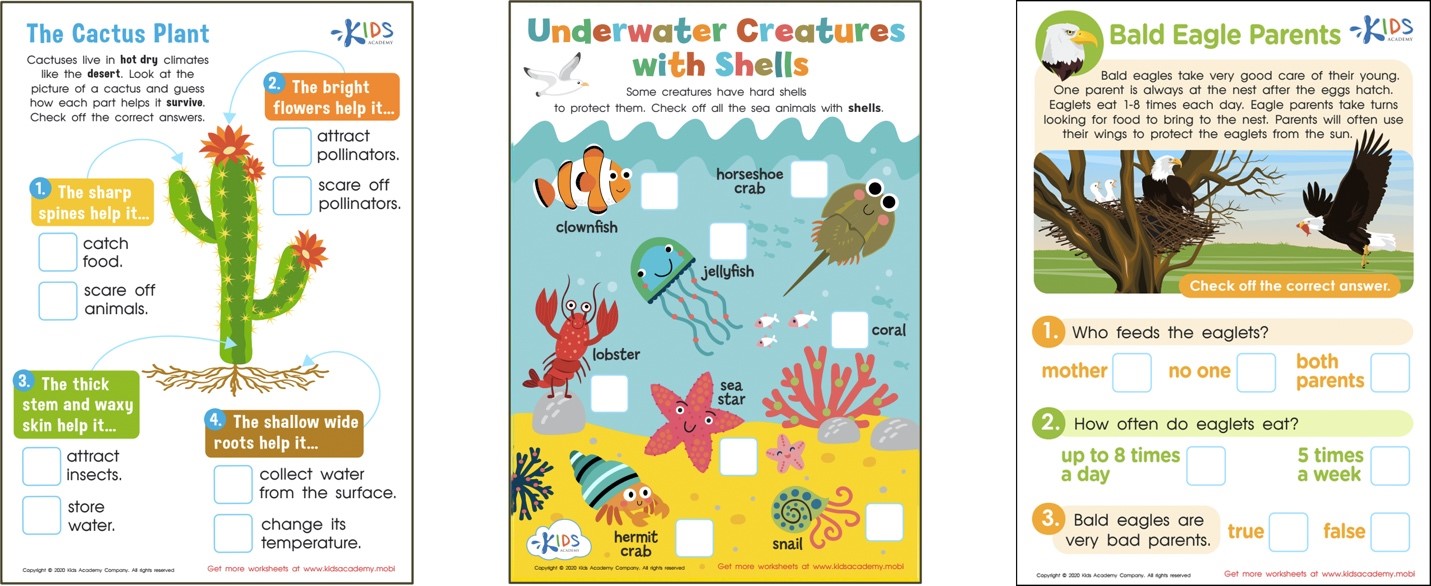
Please note that we utilize an interdisciplinary approach at Kids Academy. For example, we integrate and use some ecological topics in our math and English language arts activities to make them look familiar. Children work on reading comprehension and solve math problems with environmental topics.
In addition, cross-curricular connections provide children ways to apply previous knowledge to problem-solving and give kids "real-world" meaning in each subject. And studies show that an interdisciplinary approach to learning increases motivation and engagement in young learners. Here are some examples:
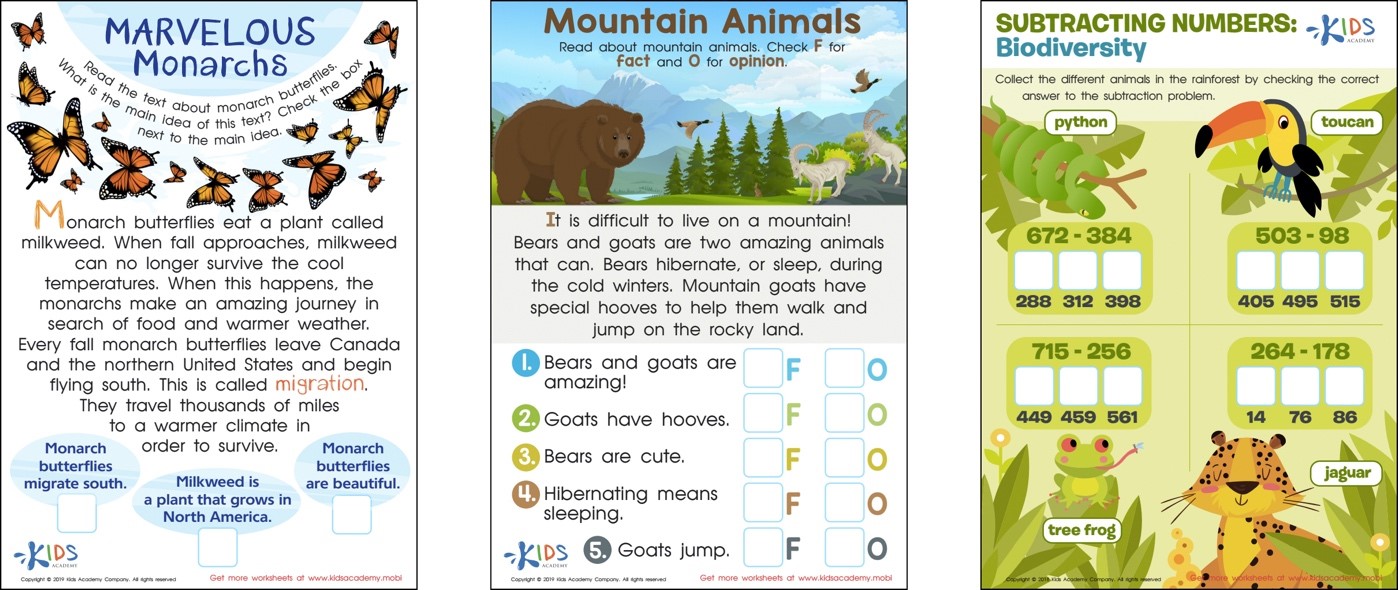
Raising a child's environmental awareness has become an essential goal for each family and each educational system since we're all in this together. Join Kids Academy as we partner to increase kids' love for planet Earth and teach valuable ecological and environmental concepts. Together we can make a difference.
Information on more early childhood education topics and development is readily available on the Kids Academy parenting blog.



